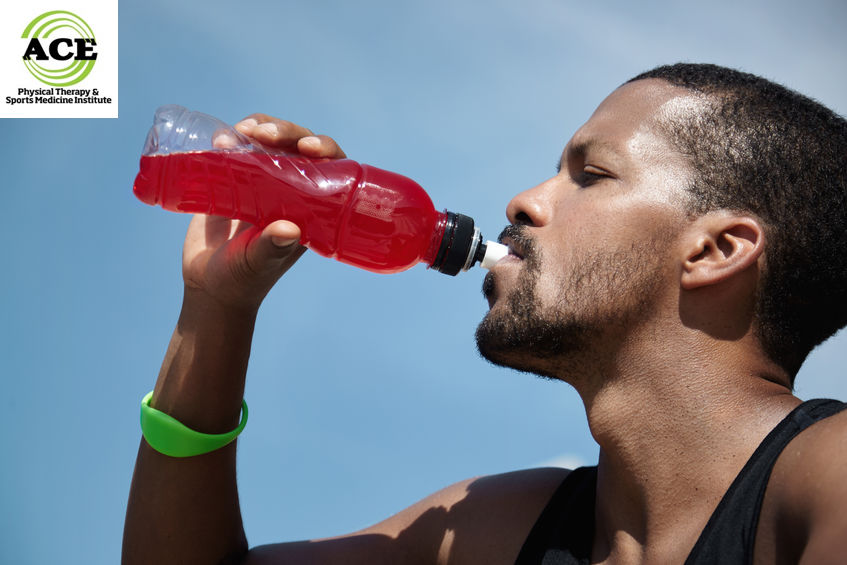DO SPORTS DRINKS IMPROVE PERFORMANCE?

Tid Bits of Info
- Ergogenic aid is a substance that helps to improve performance.
- Voted best sports drinks in 2018: Propel, Kiwi Strawberry, Zero Calorie Sports Drinking Water.
- Water and sugars can be replaced during competition but electrolytes are replaced primarily in the recovery process.
- Too much sugar in a solution can inhibit the emptying process from the intestine.
- Coconut water can be used as natural sports drink.
Almost every athlete and non-athlete have used sports drinks during a workout or competition for the past 50 years. Do sports drinks improve performance by replenishing what is lost during these activities? Recent studies have indicated that they can be helpful during hot temperature endurance-type events. Sports drinks can help replenish certain things commonly lost through sweating and possibly by controlling the thermoregulation process (sweating) within the body.
Increased core temperature can lead to a decrease in performance. If the core temperature is not controlled and continues rising, it can lead to exertional heat stress and even stroke. Special considerations in training have to be taken in a hot environment (24-28 degrees C or roughly 77 – 86 degrees F) and in an extremely hot environment (28-30 degrees C or 86- 90 degrees F) activity might have to be stopped. In these elevated temperatures, fatigue occurs more quickly and can lead to a significant decrease in performance.
While fatigue is caused by many factors, training or competing in elevated temperatures is one of the most common causes that leads to a decrease in performance and possibly injury. Fatigue in this environment is mainly due to dehydration, electrolyte imbalance and depletion of energy stores. Sports drinks are consumed during the activity to help restore hydration and energy stores.
Sports drinks are made to replace what is lost when someone sweats. The main components of the drinks are carbohydrates (glucose and maltodextrins) and electrolytes which is mainly sodium and potassium. There is a limit to the amount of either of these components due to side effects of consuming too much of either. The carbohydrates have to be limited because too much can cause difficulty with gastric emptying rates. When the solution has too much carbohydrate, the solution tends to remain in the intestine and is not delivered to the bloodstream. If this happens, the replenishment of the lost fuel source does not occur and fatigue sets in.
Electrolyte replacement should occur during the recovery stage. The recent studies on endurance athletes taking sodium supplements during their training sessions did not reveal any significant difference between the test group and placebo group. Therefore, it is important to focus the electrolyte replenishment efforts during the recovery stage following the training session.
The temperature of the sports drink is not critical, but there is some support for ingesting cold beverages. There have been some studies that indicate that the cold beverage helps to improve the performance of the endurance athlete. The body might respond well to cold drinks and have a reduction in temperature within the gut. There might be an effect on the central nervous system which produces an ergogenic effect.
In short, it seems that it is reasonable to consume sports drinks during training sessions or competitions that are endurance in nature and take place in a hot environment. Replacing hydration is critical to performance and health. Attempting to replace electrolytes with supplements during the workout does not seem likely to occur and should be one of the main focuses of the recovery process.
